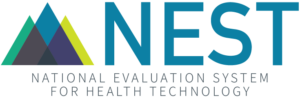Use of Real-World Evidence to Characterize Patients with Uncontrolled Hypertension

- Technology of Interest
Electrode Renal Denervation System
- Disease Area
Cardiovascular
- Network Collaborators
Yale New Haven Hospital, One Florida Health System
- Duration
12 months
- Status
Complete
Overview
This Test-Case assessed the feasibility of NESTcc Network Collaborators using electronic health records (EHRs) to gather relevant real-world data (RWD) to better characterize numbers of and outcomes experienced by patients with uncontrolled hypertension. The project focused on understanding the population of patients potentially eligible for multi-electrode renal denervation system (RDN), which is a minimally invasive, catheter-based therapy that delivers energy to the nerves leading to the kidneys that helps regulate blood pressure.
Hypertension (HTN) is the single largest modifiable contributor to death and poses a significant clinical and economic burden to patients and communities. Patients with HTN are at an increased risk for heart attack, stroke, heart failure, and kidney failure. It is estimated that in the United States, 1 in 2 adults have HTN. Despite availability of effective antihypertensive medications, less than half of patients with HTN achieve blood pressure control.
This study used RWD from health systems to retrospectively identify adult patients with uncontrolled HTN, understand their demographic and clinical characteristics, medication treatment patterns, and both short-term and long-term clinical outcomes.
The project sought to leverage RWD to better characterize the population that may benefit most from identification and better management of poorly-controlled hypertension.
RWE² Presentation
View the recording of this Test-Case presentation from the September 2021 RWE² event.
